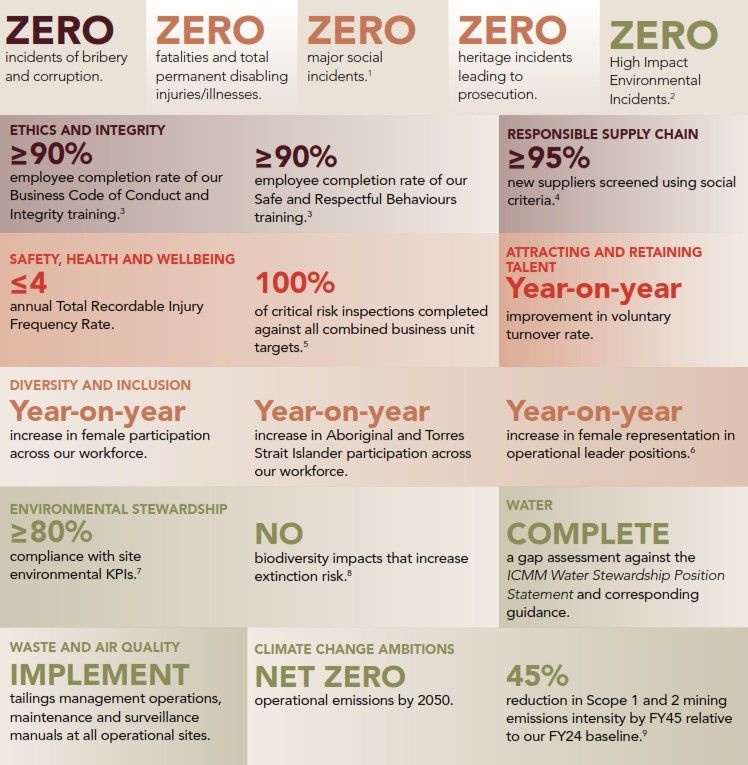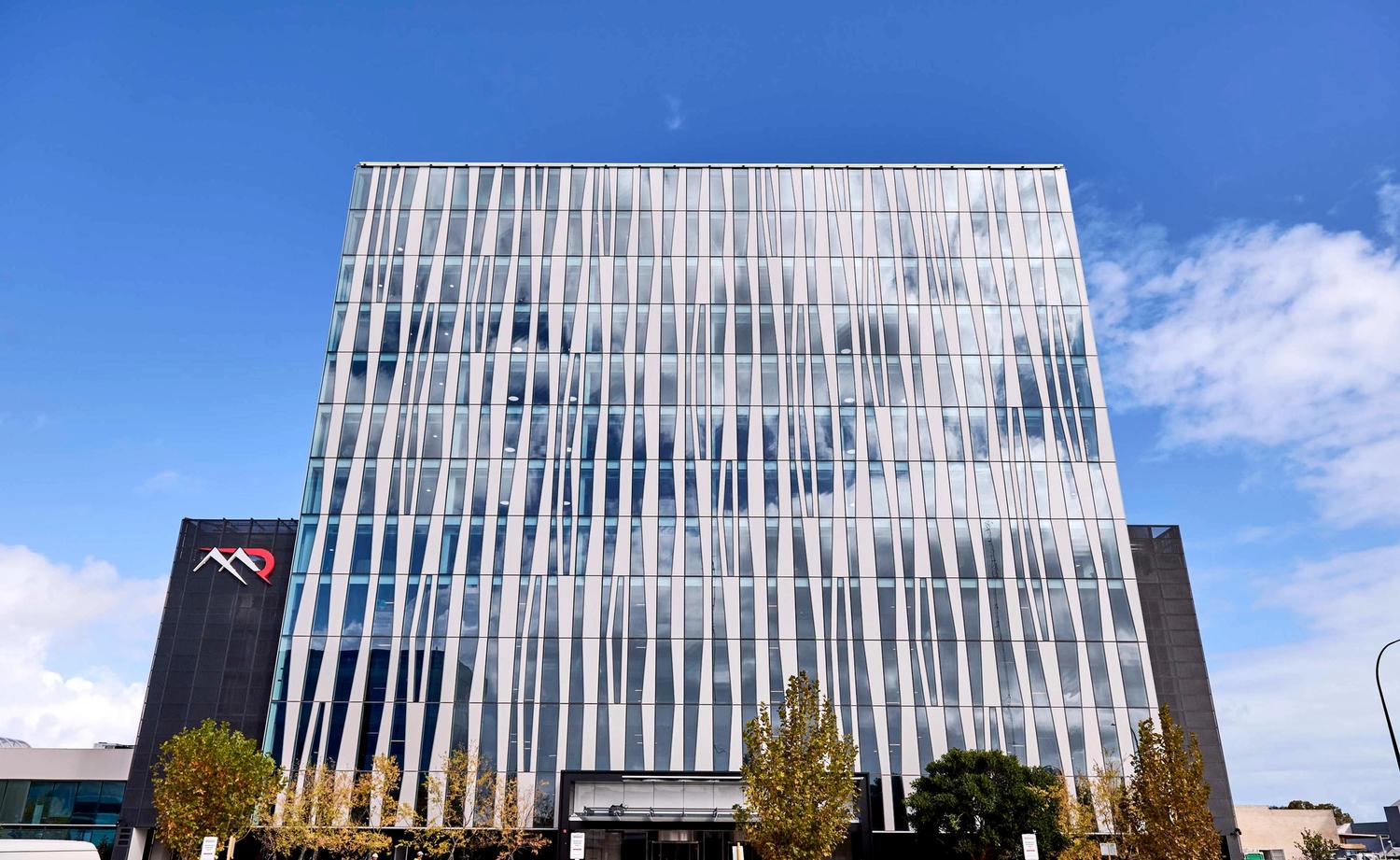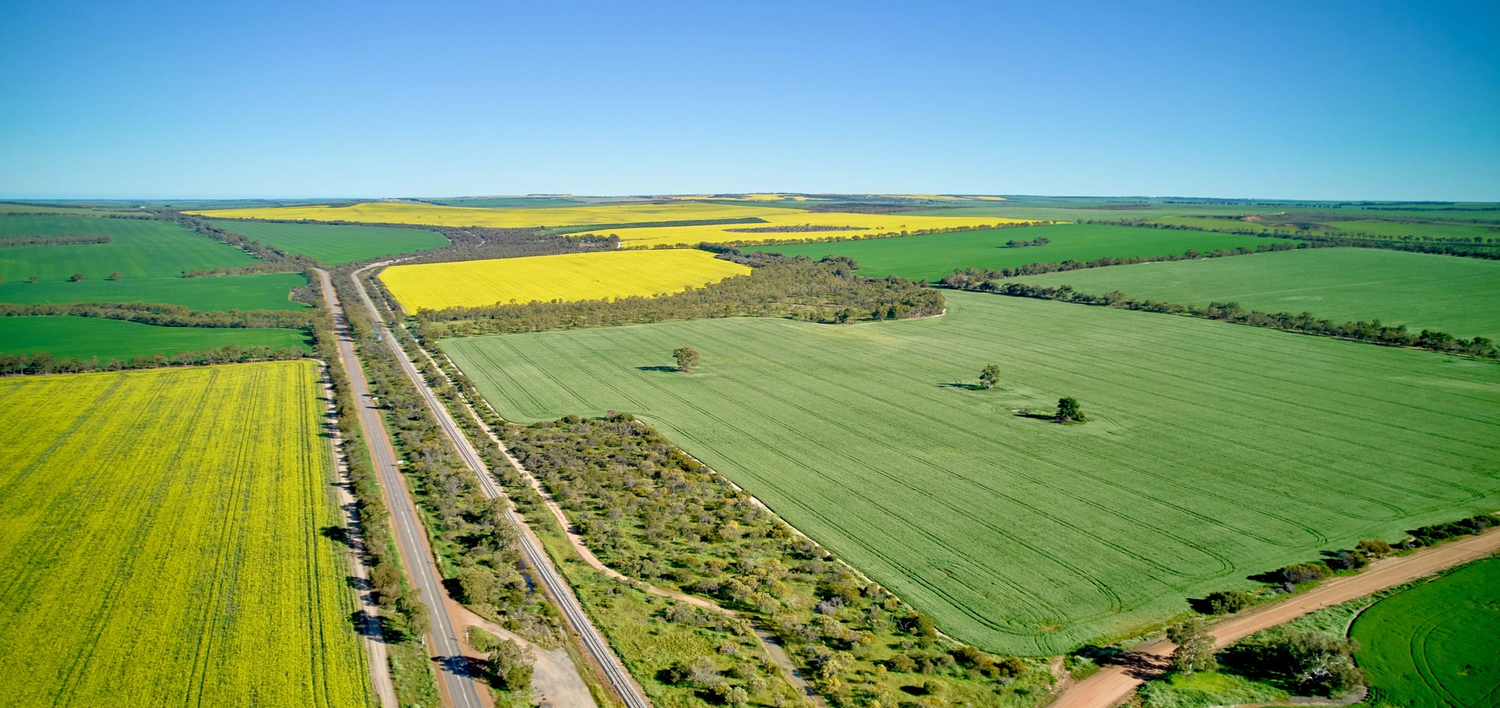Sustainability approach
Embedding sustainable practices to minimise environmental impact, support communities and drive long-term value.

Our commitment
MinRes is committed to improving our sustainability performance while we continue providing the metals and minerals the world needs to transition to a low-carbon future.
We strive to make a positive impact through our innovation and leadership in mining services and operations, encouraging responsible business practices, while recognising the importance of sustainability and acting in a manner that maintains our social licence to operate.
We aim to create long-term value for all stakeholders through the incorporation of responsible mining principles into our decision-making strategic planning and risk management processes.
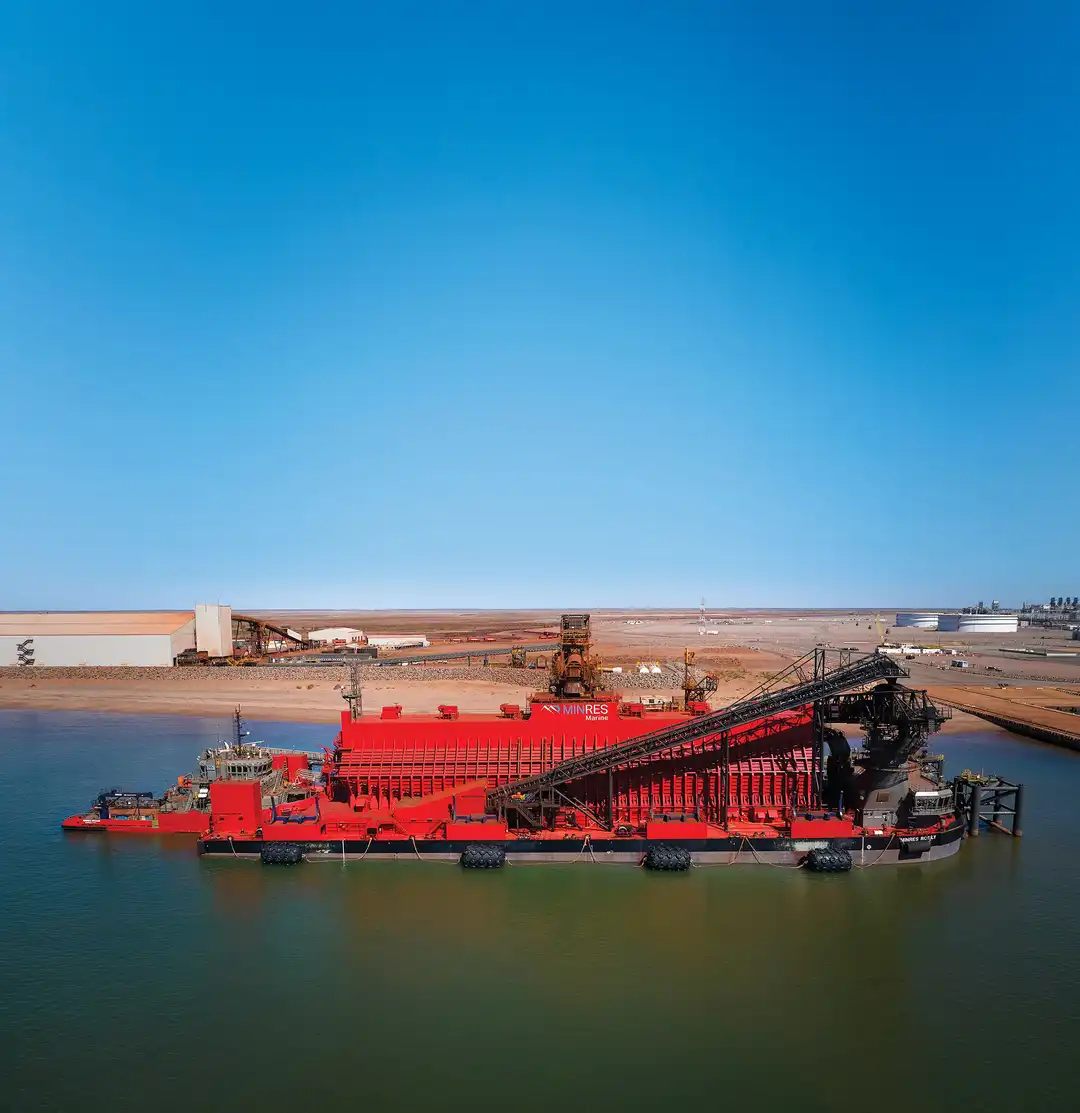
Our approach
We continue to progressively strengthen the integration of sustainability across our business, with the aim of complying with all relevant legislation and regulations and develop strong governance frameworks.
Sustainability initiatives
MinRes’ sustainability reporting is guided by several voluntary initiatives, memberships, standards and goals to ensure comprehensive and transparent disclosure of our sustainability performance.
We report in accordance with Global Reporting Initiative (GRI) Universal Standards 2021 and address relevant aspects of the GRI Mining and Metals Sector Standard, which covers key sustainability indicators that are specific to the sector.
Download our GRI Index here.
MinRes reports in line with the Sustainability Accounting Standards Board (SASB) Metals and Mining Standard and International Sustainability Standards Board (ISSB) IFRS S1 General Requirements for Disclosure of Sustainability-related Financial Information.
As a signatory to the United Nations (UN) Global Compact, MinRes is committed to upholding its Ten Principles covering areas of human rights, labour, environment and anti-corruption. Our report demonstrates our ongoing commitment and performance towards the principles and how they are integrated into our business strategy, culture and daily operations.
We have been committed to positively contributing to the UN Sustainable Development Goals (SDGs) since FY20. We recognise businesses play a significant role in advancing these goals and MinRes and the mining industry contribute through our policies and activities.
Out of the 17 SDGs, MinRes focuses its efforts on the 12 key areas our business can influence. These include:
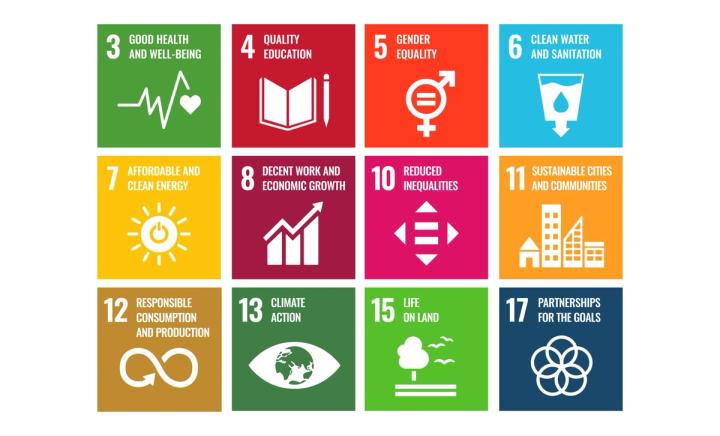
The Task Force on Climate-related Financial Disclosures (TCFD) recommendations are designed to guide improved disclosure of climate-related financial information.
Materiality approach
A materiality assessment provides a comprehensive framework for companies to evaluate sustainability-related impacts, risks and opportunities. MinRes adopts a double materiality assessment process based on a three-year cycle and applies the following materiality assessment principles:
- GRI 3 – Material Topics 2021: to understand impact on our stakeholders and the environment(impact materiality).
- ISSB IFRS S1 General Requirements for Disclosure of Sustainability-related Financial Information: to understand the potential impact of relevant sustainability topics on the company’s ability to execute its strategy, meet its commitments, perform financially and impact overall enterprise value (financial materiality).
- AASB S2 Standards: to understand the impact of climate-related risks and opportunities that could impact the company’s cash flows, access to finance or cost of capital (financial materiality).
The outcomes of the assessment determine the content of our sustainability reporting and influence the creation of our sustainability strategy, setting clear objectives and guiding the direction of our initiatives.
MinRes conducted a comprehensive materiality assessment with an external consultant in FY24 (Table1). This year, MinRes re-assessed and reviewed its materiality assessment to incorporate incremental changes against the significance of its material topics to internal and external stakeholders, as a part of the second year of the three-year cycle.
Material topics relevant to MinRes are unlikely to significantly change from last year in the absence of material changes in the operating environment. Where the significance of material topics to MinRes (financial materiality) or to our stakeholders (impact materiality) has notably shifted, these changes have been shown in Table 2.
MinRes sets targets against our key material topics, where appropriate, to produce tangible actions aimed at reducing the risks, increasing opportunities and improving behaviours. Refer to page 27 for our FY26 targets.
MinRes has identified a range of potential risks and opportunities aligned to each material topic. This includes both internal and external factors influencing our sustainability performance and social licence to operate.
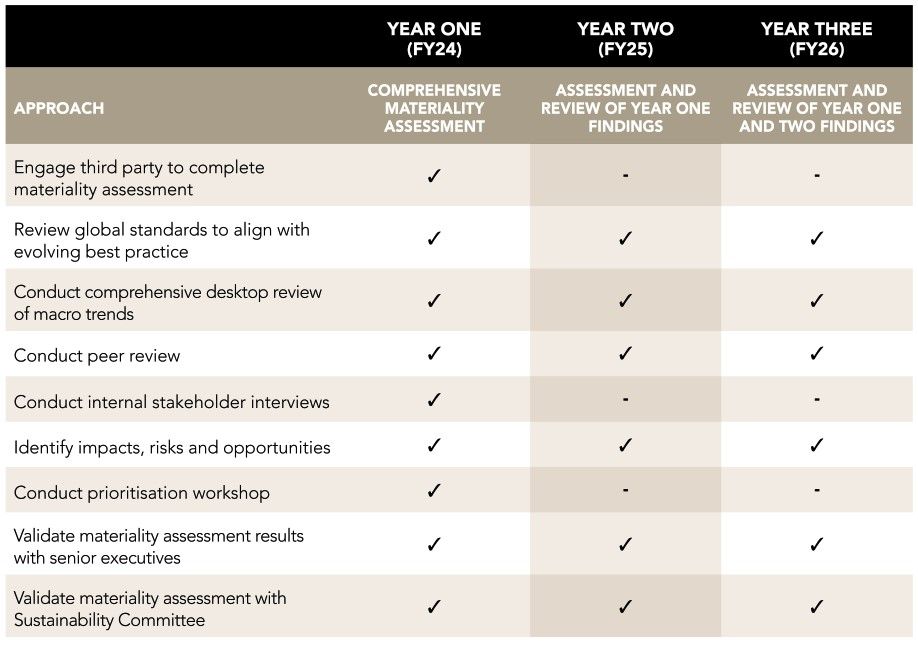
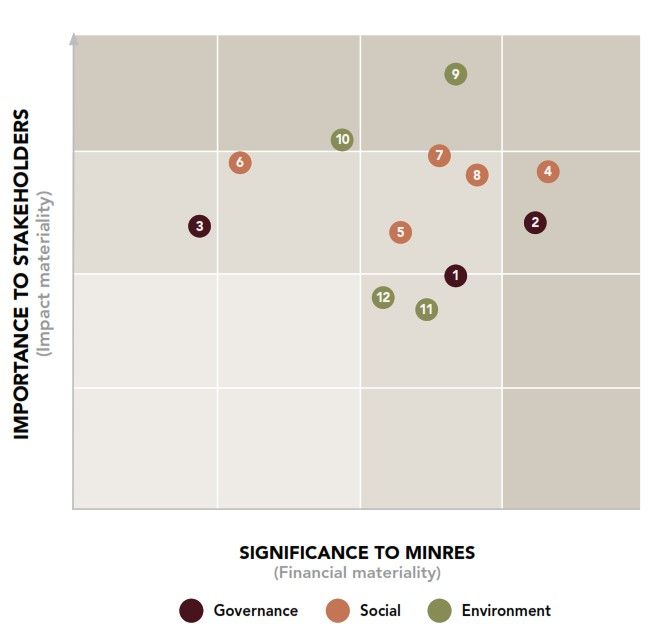
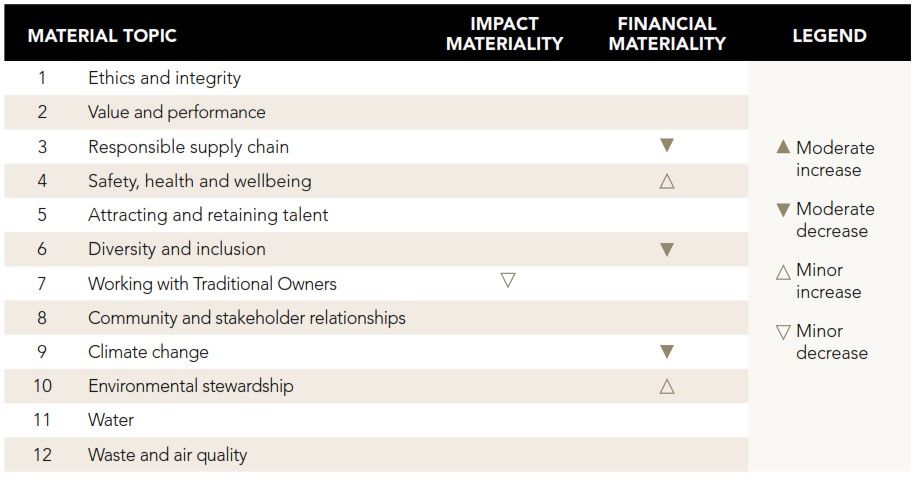
Our FY26 targets
Board approved sustainability performance targets have been set to address a number of our material topics and form the basis of our FY26 sustainability roadmap.
To develop these targets, we considered our material sustainability opportunities, risks and global challenges with a key focus on continuous improvement and ensuring meaningful outcomes for all stakeholders. In FY26, MinRes will target the following:
